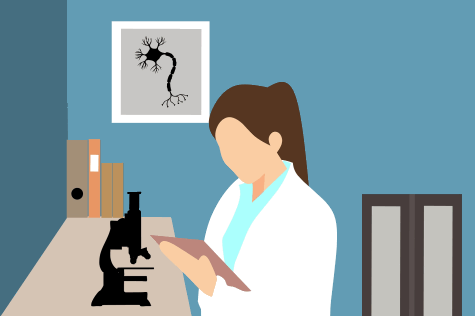Why Your Headache Specialist Probably Has Migraine Too
Ok, when I say “probably”, what I’m really saying is that, according to one study, (slightly) more than half of headache specialists have migraine. So let’s delve into that a little bit.

This study comes out of Germany, and was published in the journal Cephalalgia. Researchers wanted to discover if the personal medical history of doctors was important – and it is.
It was the actual headache specialists who were most likely to have migraine. Next came general neurologists, and then pain specialists. General practitioners even had slightly more prevalence of migraine than the general population, but not much.
So why is this? Well, the study shows that many of the headache specialists went into the field in the first place at least in part due to their own migraine. I would like to add another suggestion that wasn’t mentioned in the abstract – I bet it’s also more likely that these specialists have a close family member with migraine. Due to the genetic aspect of migraine, there would be another link between their migraine and family migraine.
Now, the other main finding is even more surprising. The health professionals did actually have a different perspective on migraine, depending on whether or not they had it themselves. Well, I guess that’s not surprising. But, according to the study, doctors with migraine had a more “somatic view”.
A what? A somatic view – in other words, they were more focused on the biological issues rather than thinking about the social or psychological aspects.
But maybe this makes more sense than it does at first glance. Those who suffer from migraine themselves are less likely, perhaps, to say silly things like “It’s just stress” or “You need to stop being so intense”. They realize that this is a real biological issue, although of course it relates to the whole person.
Another interesting point – doctors were likely to recommend triptans to their patient, but probably weren’t taking them themselves (over 1/3 of doctors with migraine took them – but they almost all recommended them to their patients)! Why? It may be that, having lived with migraine and its treatments longer, they had generally moved beyond the “first line of defence” into other treatments. I’m not convinced that there’s a more suspicious reason. But it would be worth delving into.
Anyway, yes, if your specialist has migraine themselves, it does make a difference. I don’t think that this is a reason to only have doctors who themselves have suffered from migraine – that probably has its pros and cons. But it is nice, in some ways, to see so many working hard in this field who understand the pain that we’re going through.
Here’s the study abstract: Primary headache and migraine in headache specialists – does personal history of doctors matter?
